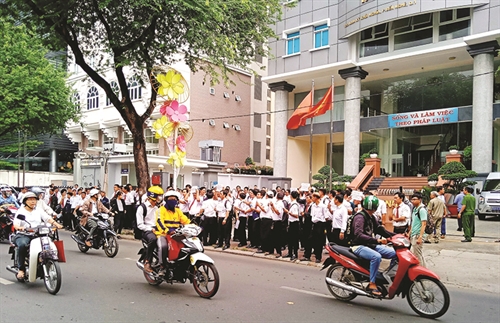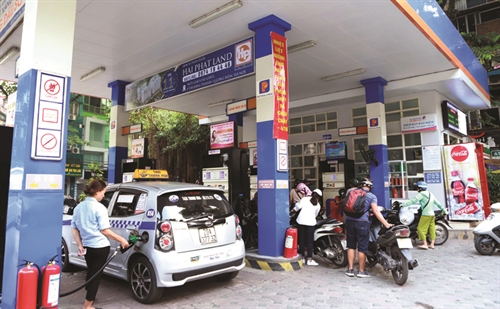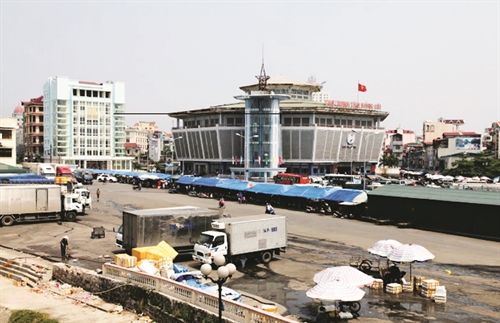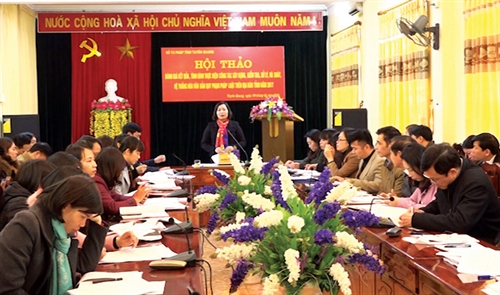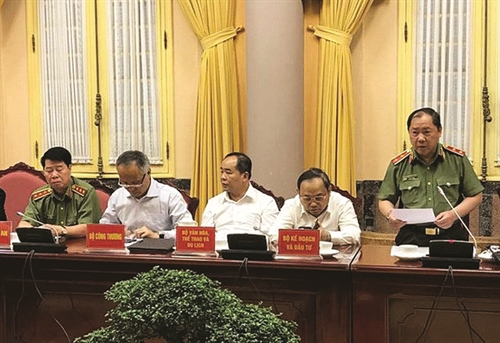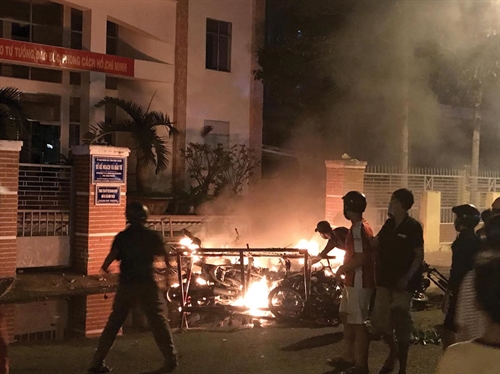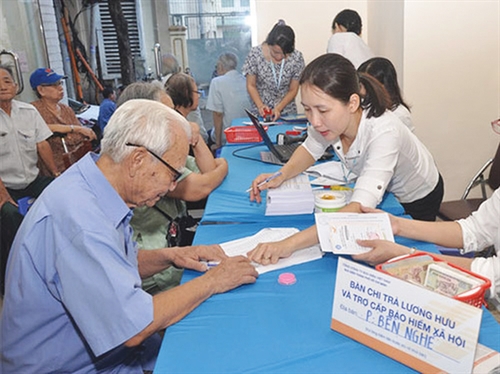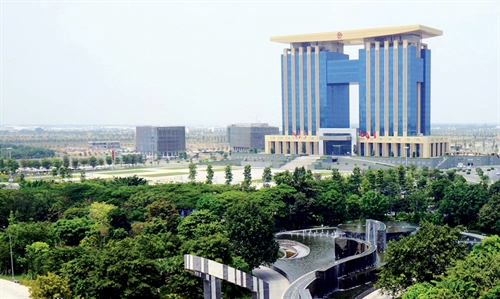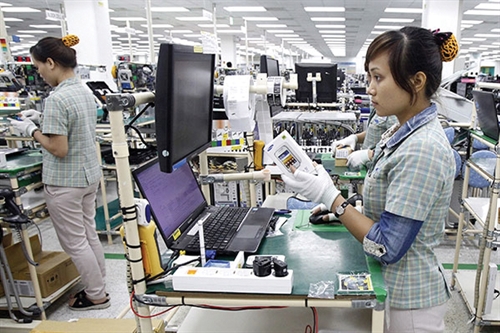Prime Minister Nguyen Xuan Phuc has recently signed a scheme on measuring non-observed economic (NOE) activities, with a view to drawing a clearer and more comprehensive picture of the national economy.
According to the scheme, the General Statistics Office of Vietnam (GSO) will soon start collecting statistics on NOE activities. It is expected that from 2020, NOE activities will be incorporated in the country’s GDP.
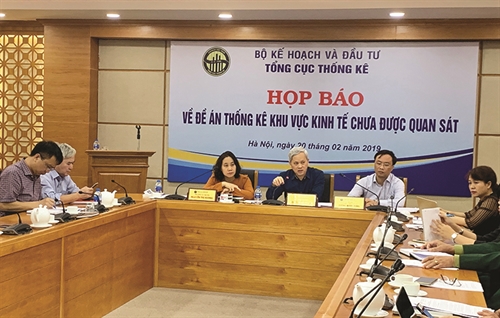 |
| A press conference held by the Ministry of Planning and Investment to debut the scheme on measuring NOE activities on February 20__Photo: VNA |
As explained by GSO Director General Nguyen Bich Lam, the NOE sector covers five groups of economic activities, including underground activities, illegal activities, informal activities, activities undertaken by households for their own final use, and activities missed due to deficiencies in statistical data collection.
Why should NOE activities be brought into light?
Although there are no verified data about the scope of NOE activities in Vietnam, economists believe that they make up a fairly large part of the country’s economy.
In an interview with Tuoi Tre News, Do Thien Anh Tuan, an expert from the Fulbright Economics Teaching Program, said Vietnam’s shadow economy made up some 15 percent of its GDP in the 1991-2015 period. During the peak of Vietnam’s economic expansion, that proportion swung at 25 percent. At present, the underground economy accounts for 25-30 percent of Vietnam’s GDP and uses around 57 percent of the country’s workforce, he said, citing statistics from a study published by Fulbright University Vietnam.
The Chinese Embassy in Vietnam has recently released a report on China-Vietnam bilateral trade, stating that the total import and export turnover between the two countries reached USD 120 billion in 2017 and USD 66 billion in the first half of 2018. However, according to the GSO’s statistics, the figures were just USD 93.8 billion and USD 47.7 billion, respectively. The big differences in statistical data published by the two countries, which mount to USD 26.2 billion for the whole year 2017 and USD 18.3 billion for the first half of 2018, have shocked many economic experts.
“This manifests the vast scope of underground activities in Vietnam-China bilateral trade, mainly unofficial cross-border trade, including even smuggling, trade fraud and tax evasion practices, which probably exert great negative impacts on domestic production,” an industry and trade insider was quoted by Tuoi Tre newspaper as saying.
Another datum that can help figure out the scale of NOE activities is the number of businesses not yet managed by tax authorities. According to data published on Dau Tu newspaper, the country has a total of 726,000 businesses and more than 2 million business households. However, the General Department of Taxation disclosed that in 2018, there were approximately 582,000 business households omitted by tax offices nationwide. It is not to mention those who conduct business via social media apps. Against the backdrop of the ongoing Fourth Industrial Revolution, NOE activities are now booming in not only the real world but also the cyber environment. Social networks like Facebook and Instagram have actually become marketplaces where people can buy and sell everything, ranging from home-made foodstuff to medicines and machinery, but in most cases, do not pay any taxes.
Economists all agree that failure to include the value of NOE activities in GDP will lead to inaccuracies in economic indicators, while the State will suffer a huge tax loss. Although the coexistence of shadow and formal economies in developing nations is a long acknowledged fact of life, as Vietnam is trying to restructure its economy, it is the right time for the country to enlighten its shadow economy and on that basis, adopt appropriate policies for this sector.
GSO leader Nguyen Bich Lam affirmed that collection of statistical data on NOE activities will bring about positive effects.
“The Government has long since failed to formulate policies to manage and support NOE activities. If wishing to attain inclusive growth, the Government should not omit any sector of the economy in the policy-making process. Inclusive economic policies can hardly be shaped if a fairly large part of the economy is missed out,” Lam explained, adding that once policymakers fail to observe and acknowledge all particular features of a certain sector, policies would become impractical.
How to collect and use statistics on NOE activities?
According to Lam, the GSO will use the direct method to measure informal production and business activities, activities undertaken by households for their own account, and activities missed out in statistical programs. Meanwhile, underground and illegal economic activities will be measured by indirect method or estimated by the method of building macro-economic models.
The scheme on measuring NOE activities also underlines six solutions for narrowing the scope and scale of underground and illegal economies, attaching importance to the improvement of legal documents on registration of production and business operations; obligations to make contributions to the state budget; grant of credit facilities; social insurance premiums and benefits; and administrative sanctions and examination of penal liability of those who commit underground economic activities.
 |
| Online shopping via social media apps are rampant but not yet controlled__Photo: Internet |
In an interview with Dau Tu newspaper, GSO Deputy General Director Nguyen Thi Huong said GSO will work closely with related agencies, particularly tax offices, customs offices, finance agencies and banks, so as to have the most accurate statistics.
Dinh Tuan Minh, an economist from Viet Analytics Company, commented that it would be very difficult to obtain reliably accurate statistics of the non-observed economy. “Even registered enterprises sometimes conduct off-balance sheet transactions,” he told Tuoi Tre, emphasizing the need to take drastic measures to boost cashless payment and legalize a number of underground economic activities so as to improve statistical work.
Meanwhile, statistical expert Bui Trinh expressed his worry about the inclusion of statistics on NOE activities in GDP. “At present, Vietnam’s GDP data are still doubted as statistics are based on many estimations with errors. If the underground economy is taken into consideration when calculating GDP, which means another vague estimation is added, it would be dangerous,” Trinh was quoted by the local newswire CafeF as saying. “When underground economic activities are included in GDP, then GDP growth rate would become ‘delusive’ as it shows an increase in per-capita income and a decrease in overspending and public debt ratios while the truth is far from that,” Trinh said.
Public policy expert Nguyen Quang Dong share Trinh’s viewpoint. “One of the Government’s objectives is to make the full use of every resource to upsize the national economy. But this would be accompanied with public debt and overspending risks,” Dong said to Nguoi Lao Dong newspaper.
To ease this concern, Lam has once and again reaffirmed: “The measuring of NOE activities aims to reflect the scope and size of the national economy in a more complete and comprehensive manner, thus improving the effectiveness of the state management but neither to ‘beautify’ data nor to lay foundations for increase of public debts, spending or investment.”- (VLLF)
